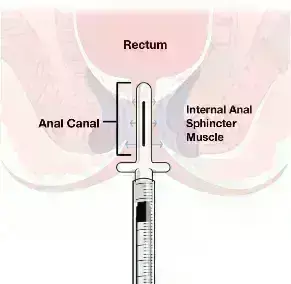- Home
- Medical news & Guidelines
- Anesthesiology
- Cardiology and CTVS
- Critical Care
- Dentistry
- Dermatology
- Diabetes and Endocrinology
- ENT
- Gastroenterology
- Medicine
- Nephrology
- Neurology
- Obstretics-Gynaecology
- Oncology
- Ophthalmology
- Orthopaedics
- Pediatrics-Neonatology
- Psychiatry
- Pulmonology
- Radiology
- Surgery
- Urology
- Laboratory Medicine
- Diet
- Nursing
- Paramedical
- Physiotherapy
- Health news
- Fact Check
- Bone Health Fact Check
- Brain Health Fact Check
- Cancer Related Fact Check
- Child Care Fact Check
- Dental and oral health fact check
- Diabetes and metabolic health fact check
- Diet and Nutrition Fact Check
- Eye and ENT Care Fact Check
- Fitness fact check
- Gut health fact check
- Heart health fact check
- Kidney health fact check
- Medical education fact check
- Men's health fact check
- Respiratory fact check
- Skin and hair care fact check
- Vaccine and Immunization fact check
- Women's health fact check
- AYUSH
- State News
- Andaman and Nicobar Islands
- Andhra Pradesh
- Arunachal Pradesh
- Assam
- Bihar
- Chandigarh
- Chattisgarh
- Dadra and Nagar Haveli
- Daman and Diu
- Delhi
- Goa
- Gujarat
- Haryana
- Himachal Pradesh
- Jammu & Kashmir
- Jharkhand
- Karnataka
- Kerala
- Ladakh
- Lakshadweep
- Madhya Pradesh
- Maharashtra
- Manipur
- Meghalaya
- Mizoram
- Nagaland
- Odisha
- Puducherry
- Punjab
- Rajasthan
- Sikkim
- Tamil Nadu
- Telangana
- Tripura
- Uttar Pradesh
- Uttrakhand
- West Bengal
- Medical Education
- Industry
Chemical sphincterotomy with calcium channel blockers effectively relieves pain after haemorrhoidectomy

Haemorrhoid is one of the most common anal diseases in the world, and it is estimated that the lifetime risk of developing haemorrhoids in the general population may be as high as 75%. Surgical treatment remains the primary modality indicated for high-grade haemorrhoids.
Chemical sphincterotomy with calcium channel blockers effectively relieves pain after haemorrhoidectomy finds a new study.
The study has been published in the BMC Surgery.
This study aims to evaluate the pain relief function of chemical sphincterotomy in patients undergoing haemorrhoid surgery and compare, through a meta-analysis, the different drugs used to treat this condition.
Researchers conducted a search in databases including PubMed, EMBASE and Web of Science. The methodological quality was evaluated using the Revised Cochrane risk-of-bias tool for randomized trials (ROB2). The pain score was assessed using a visual analogue scale (VAS) on day 1, day 2, and day 7, and a meta-analysis was conducted based on the use of random effects models. In addition, the subgroup analysis was evaluated based on the kind of experimental drugs. Heterogeneity and publication bias were assessed.
Results
Fourteen studies with a total of 681 patients were included in this meta-analysis, and all studies were randomized controlled trials RCTs. Chemical sphincterotomy showed better pain relief function than placebo on day 1 (SMD: 1.16, 95% CI 0.52 to 1.80), day 2 (SMD: 2.12, 95% CI 1.37 to 2.87) and day 7 (SMD: 1.97, 95% CI 1.17 to 2.77) after surgery. In the subgroup meta-analysis, we found that different drugs for chemical sphincterotomy provided different pain relief.
Chemical sphincterotomy effectively relieves pain after haemorrhoidectomy, and calcium channel blockers have the best effect.
Reference:
Cheng, Y., Mao, M., Shang, Y. et al. Chemical sphincterotomy in posthemorrhoidectomy pain relief: a meta-analysis. BMC Surg 23, 113 (2023). https://doi.org/10.1186/s12893-023-02025-3
Keywords:
Chemical, sphincterotomy, calcium, channel, blockers, effectively, relieves, pain, haemorrhoidectomy, BMC Surgery, Cheng, Y., Mao, M., Shang, Y.
Dr. Shravani Dali has completed her BDS from Pravara institute of medical sciences, loni. Following which she extensively worked in the healthcare sector for 2+ years. She has been actively involved in writing blogs in field of health and wellness. Currently she is pursuing her Masters of public health-health administration from Tata institute of social sciences. She can be contacted at editorial@medicaldialogues.in.
Dr Kamal Kant Kohli-MBBS, DTCD- a chest specialist with more than 30 years of practice and a flair for writing clinical articles, Dr Kamal Kant Kohli joined Medical Dialogues as a Chief Editor of Medical News. Besides writing articles, as an editor, he proofreads and verifies all the medical content published on Medical Dialogues including those coming from journals, studies,medical conferences,guidelines etc. Email: drkohli@medicaldialogues.in. Contact no. 011-43720751


